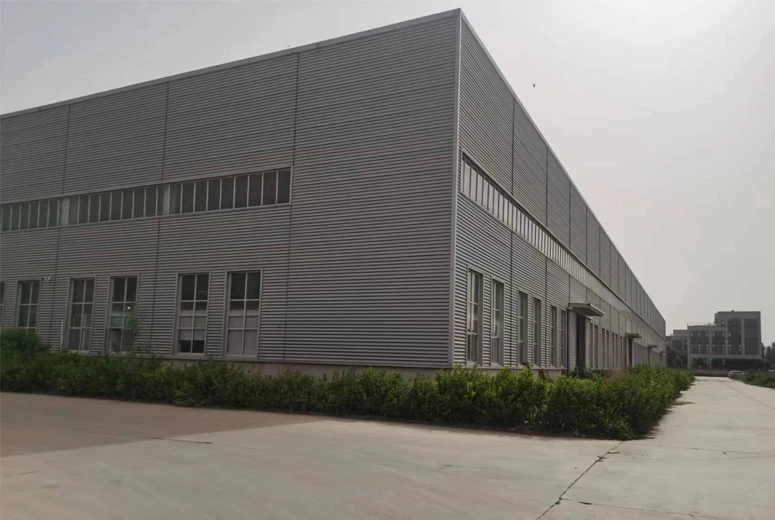Shear Force Testing Equipment for Material Strength Analysis and Structural Integrity Evaluation
Understanding Shear Force Machines An Essential Component in Engineering
In engineering, the ability to manipulate and analyze forces is crucial. One of the fundamental forces that engineers often deal with is shear force. Shear force machines are specialized tools designed to measure and analyze the shear forces acting on materials, structures, and components. These machines are vital in various fields, including construction, manufacturing, aerospace, and automotive industries. This article will delve into the functionality, importance, applications, and benefits of shear force machines.
What is Shear Force?
To understand shear force machines, one must first comprehend what shear force is. Shear force occurs when two parallel forces act in opposite directions, causing one part of a material to slide past another. This action can lead to deformation or failure of materials, making it imperative for engineers to assess the shear strength of different materials to ensure safety and performance.
Functionality of Shear Force Machines
Shear force machines are designed to perform specific tests that measure the shear strength of materials. Typically, these machines utilize a loading mechanism to apply a force to the material being tested. The material is often placed between two plates or within a fixture that allows the application of shear force. As the load is applied, the machine measures the force exerted and the resulting displacement of the material until failure occurs.
Most shear force machines are equipped with advanced sensors and data acquisition systems that allow for real-time monitoring and recording of test data. This data is critical for analyzing the material's behavior under shear loading conditions and helps determine its shear strength, modulus of rigidity, and other mechanical properties.
Importance of Shear Force Testing
Testing shear strength is essential for several reasons
1. Safety Understanding the shear strength of materials is crucial in ensuring that structures can withstand loads without failure. For example, in the construction of bridges and buildings, knowing how materials respond to shear forces helps engineers design safer and more reliable structures.
shear force machine

2. Material Selection Shear force tests aid in selecting appropriate materials for specific applications. For instance, in the automotive industry, materials must be chosen based on their ability to resist shear forces during operation, particularly in high-stress areas.
3. Quality Control Shear force machines play a vital role in the quality control process. By testing materials and components, manufacturers can ensure that their products meet specified safety and performance standards.
Applications of Shear Force Machines
Shear force machines find applications across various industries. In the construction industry, they are used to test the shear strength of concrete, steel, and other structural materials. In the aerospace industry, these machines help ensure that aircraft components can withstand the extreme forces experienced during flight.
Moreover, in the automotive sector, shear force testing is essential for evaluating the performance of components such as bolts, gears, and chassis. Additionally, shear force machines are utilized in research institutions to study new materials and develop innovative engineering solutions.
Benefits of Using Shear Force Machines
Investing in shear force testing equipment offers numerous benefits
- Precision Modern shear force machines provide accurate measurements, enhancing the reliability of test results. - Automation Many machines can be automated, reducing human error and increasing efficiency during testing procedures. - Data Analysis The capability to analyze data in real-time allows engineers to make informed decisions quickly.
In conclusion, shear force machines are indispensable tools in engineering, playing a crucial role in ensuring the safety, reliability, and performance of materials and structures. Their ability to measure shear strength accurately is fundamental for material selection, quality control, and safety assessments across various industries. As technology advances, the capabilities of shear force machines will continue to evolve, further enhancing their importance in the world of engineering.
-
High Frequency Straight Seam Welded Pipe Production Line-BzZhou Xinghua Machinery Equipment Manufacturing Co., LTD.|Precision Welding, High EfficiencyNewsJul.30,2025
-
High Frequency Straight Seam Welded Pipe Production Line|BzZhou Xinghua|Precision Welding&EfficiencyNewsJul.30,2025
-
High Frequency Straight Seam Welded Pipe Production Line - BzZhou Xinghua|Precision Engineering&EfficiencyNewsJul.30,2025
-
High-Frequency Straight Seam Welded Pipe Production Line-BzZhou Xinghua Machinery Equipment Manufacturing Co., LTD.NewsJul.30,2025
-
High-Frequency Straight Seam Welded Pipe Production Line-BzZhou Xinghua Machinery Equipment Manufacturing Co., LTD.|Precision Manufacturing, High EfficiencyNewsJul.30,2025
-
High Frequency Straight Seam Welded Pipe Production Line-BzZhou Xinghua Machinery Equipment Manufacturing Co., LTD.|Precision Steel Pipe Manufacturing&Industrial EfficiencyNewsJul.29,2025


